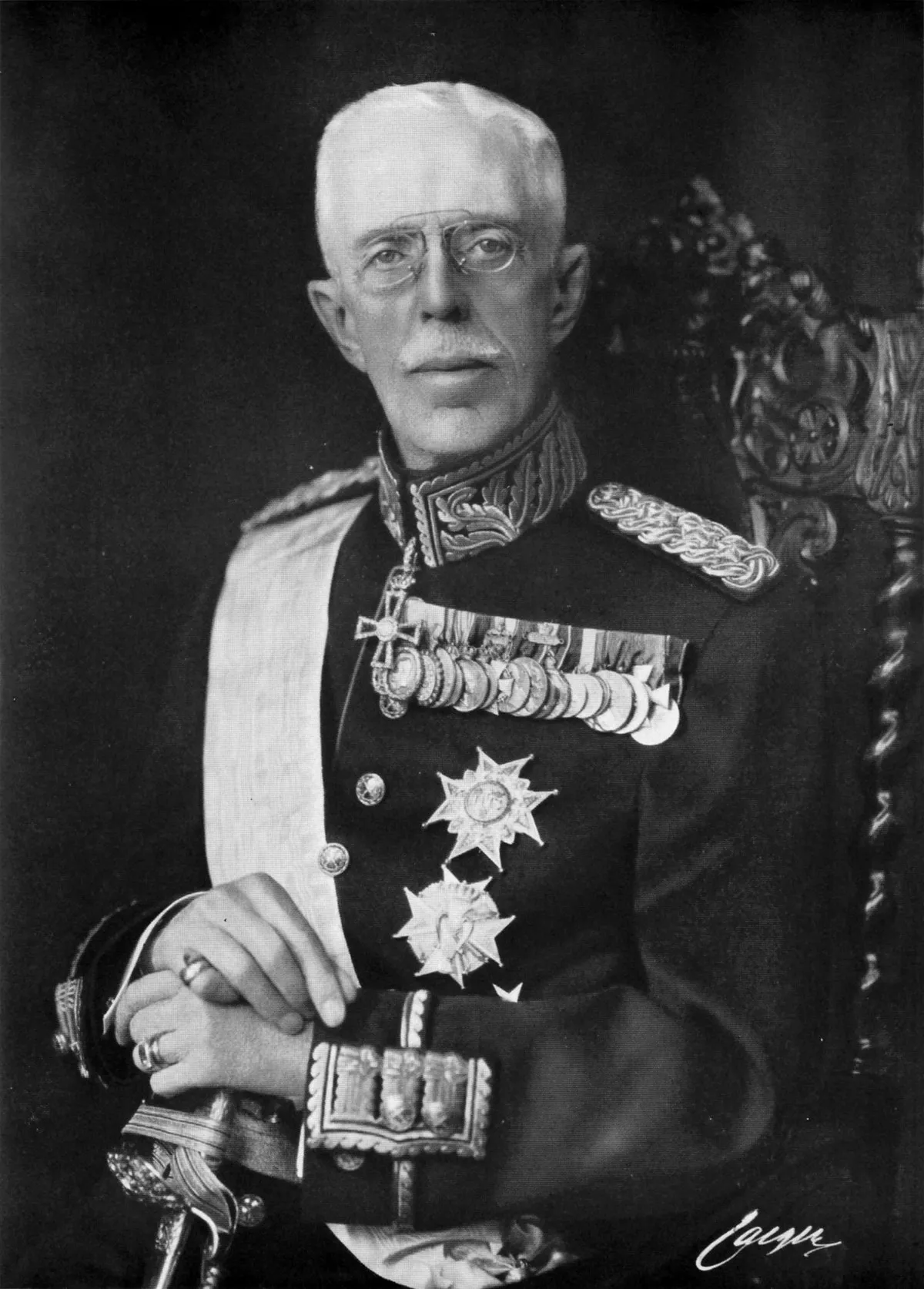 1.
1. Gustaf V was King of Sweden from 8 December 1907 until his death in 1950.

 1.
1. Gustaf V was King of Sweden from 8 December 1907 until his death in 1950.
Gustaf V was the eldest son of King Oscar II of Sweden and Sophia of Nassau, a half-sister of Adolphe, Grand Duke of Luxembourg.
Gustaf V was the last Swedish monarch to exercise his royal prerogatives, which largely died with him, although they were formally abolished only with the remaking of the Swedish constitution in 1974.
Gustaf V was the first Swedish king since the High Middle Ages not to have a coronation and so never wore the king's crown, a practice that has continued ever since.
Gustaf V had pro-German and anti-Communist stances which were outwardly expressed during World War I and the Russian Civil War.
An avid hunter and sportsman, Gustaf V presided over the 1912 Olympic Games and chaired the Swedish Association of Sports from 1897 to 1907.
Gustaf V was born on 16 June 1858 in Drottningholm Palace in Ekero, Stockholm County, the son of Prince Oscar, Duke of Ostergotland and Princess Sofia of Nassau.
Gustaf V's father was a younger son of the reigning king, Oscar I, and as the king's eldest son, Crown Prince Charles had no surviving sons, it could be expected that the new-born prince would one day inherit the Swedish throne.
On 18 September 1872 his uncle King Charles XV died, and Gustaf V's father ascended the throne as King Oscar II.
On 8 December 1907 King Oscar II died and the 49-year-old Gustaf V succeeded his father as King of Sweden as the fifth monarch from the House of Bernadotte.
When he ascended the throne, Gustaf V was, at least on paper, a near-autocrat.
Early in his reign, in 1910, Gustaf V refused to grant clemency to the convicted murderer Johan Alfred Ander, who thus became the last person to be executed in Sweden.
At first Gustaf V seemed to be willing to accept parliamentary rule.
Gustaf V was angered that he had not been consulted in advance of the speech.
However, Gustaf V retorted that he still had the right to "communicate freely with the Swedish people".
Gustaf V was now bound to act on the ministers' advice.
Gustaf V accepted his reduced role, and reigned for the rest of his life as a model limited constitutional monarch.
Gustaf V was considered to have German sympathies during World War I His political stance during the war was highly influenced by his wife, who felt a strong connection to her German homeland.
Gustaf V was noted for appealing to Miklos Horthy, leader of the Kingdom of Hungary, to save its Jews "in the name of humanity".
When Nazi Germany invaded the Soviet Union in June 1941, Gustaf V tried to write a private letter to Hitler thanking him for taking care of the "Bolshevik pest" and congratulating him on his "already achieved victories".
Gustaf V was stopped from doing so by Prime Minister Per Albin Hansson.
Gustaf V had lived through anxious days and had gone far in giving his personal support to the matter.
Gustaf V added confidentially that he had found it necessary to go so far as to mention his abdication.
Gustaf V wore pince-nez eyeglasses and sported a pointed mustache for most of his teen years.
Gustaf V was a devoted tennis player, appearing under the pseudonym Mr G As a player and promoter of the sport, he was elected to the International Tennis Hall of Fame in 1980.